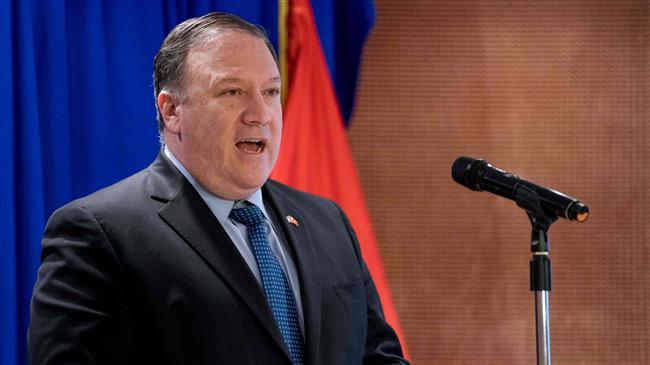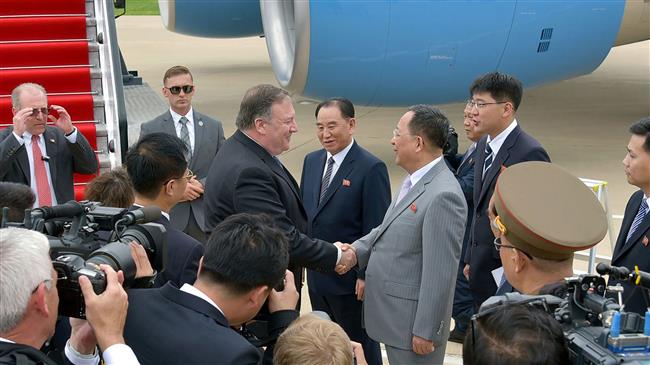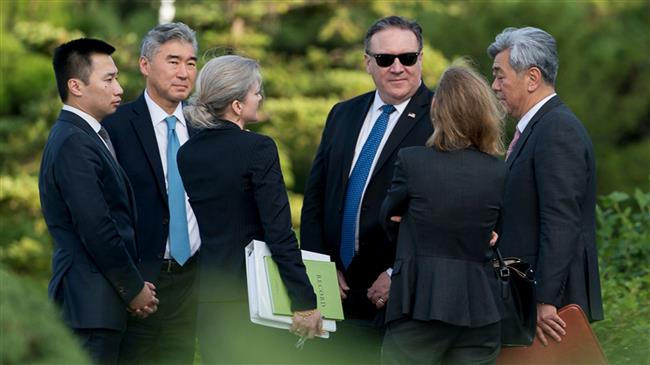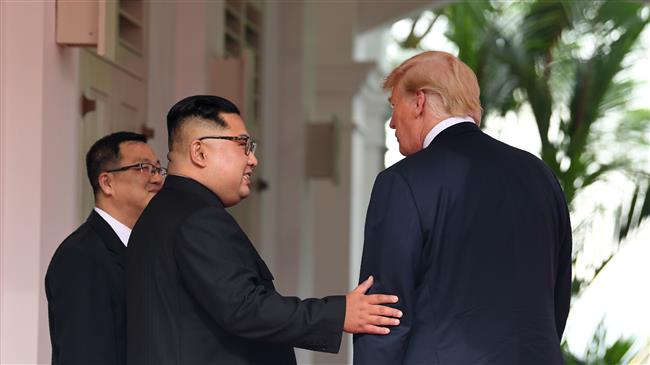US demand from North Korea for unilateral denuclearization will fail: Analyst
The US government's policy of demanding North Korea to completely denuclearize without offering major concessions will likely fail and prompted Pyongyang to accuse Washington of having a “gangster- like” diplomacy, an antiwar activist in San Francisco says.
“Apparently what they’re demanding is a full denuclearzation, giving up its nuclear weapons, which are a deterrent to US attack, before anything else happens,” said Richard Becker, a regional coordinator for the ANSWER Coalition, a protest umbrella group consisting of many antiwar and civil rights organizations.
“Of course the North Koreans are not going to accept that idea,” Becker said Monday in an interview with Press TV.
Many hawkish officials in the administration of US President Donald Trump, including National Security Adviser John Bolton, reject any compromise with North Korea and seek its total decimation, Becker said.
“The whole administration, and particularly people like John Bolton as the national security adviser, said yeas ago that his policy on North Korea was that there should be no North Korea,” Becker said. “So there’s ample gangsterism inside of the administration to cause the North Koreans to characterize the negotiations in that way.”
North Korea, in a statement released Saturday hours after talks with US Secretary of State Mike Pompeo ended, called the negotiations “regrettable” and accused the US of making “gangster-like” demands for denuclearization.
US Senator Lindsey Graham said Sunday that China may have pressured North Korea to take a harder line against Pompeo during the latest round of denuclearization talks in Pyongyang.
Graham, among the most hawkish lawmakers in the Senate, placed blame for the North's colder attitude on Chinese influence, saying that the outbreak of a trade dispute between Washington and Beijing was to blame for the antagonism.
During a much-publicized summit in Singapore last month, Trump and North Korean leader Kim Jong-un signed a brief, broadly-worded document, according to which both sides committed to working toward “complete denuclearization of the Korean Peninsula.”
VIDEO | Germany's pro-Israel policy
VIDEO | Press TV's news headlines
VIDEO | Jordan’s Islamic Action Front Party launches ‘warmth for Gaza’ campaign
VIDEO | Hezbollah standing strong
VIDEO | Gazans enduring freezing cold for 2nd consecutive year
VIDEO | Hezbollah takes ‘elite’ Israeli brigade under rocket salvo; strikes ground forces base for 1st time
Iran calls on UN Security Council to slap effective, comprehensive sanctions on Israel
Germany says to join ‘nuclear’ talks with Iran, UK, France














 This makes it easy to access the Press TV website
This makes it easy to access the Press TV website